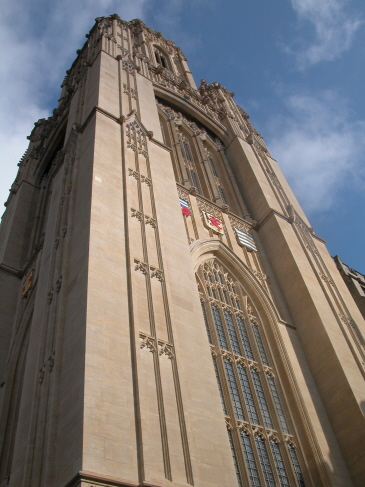It comes as concerns mount over diminishing privacy rights as security agencies increasingly use data mining in the fight against terror.
The conference, organised entirely by a committee of six students from the University of Bristol Law School, has attracted top speakers including:
- Robert Buckland, MP for Swindon and Chair of the Conservative Party Human Rights Commission
- Richard Norton-Taylor, former Security and Defence Editor at the Guardian
- Professor Andrew Murray, Professor of Law at the London School of Economics
- Marie Anderson, former Assistant Information Commissioner for Northern Ireland
- Dr Theo Tryfonas, Senior Lecturer in Systems Engineering at the University of Bristol
They will discuss their perspectives on the changing notions and values of privacy, the legal and social impacts of this shift and how this relates to security.
Intelligence and security networks access information such as airline bookings, biometric data, telephone and financial records to effectively pre-empt possible terrorist attacks, but the use of modern data mining and processing methods involve the examination of the innocent as well as suspects to identify patterns of interest for further investigation.
Such issues have been in the spotlight recently due to the Prism surveillance programme which allows officials from the National Security Agency (NSA) in the US to collect material including search history, the content of emails, file transfers and live chats from companies including Google, Apple and Facebook.
The NSA, the world's largest surveillance organisation, was able to obtain communications without having to request them from the service providers and without having to obtain individual court orders, claiming it was important intelligence information used to protect the US from a wide variety of threats.
Facebook founder Mark Zuckerman recently claimed that privacy was no longer a ‘social norm’ due to the rise of social networking online. Legally, the implications of this privacy shift in a digital age are far-reaching and complex.
Nicole Wong, a 2nd Year MA Law student and President of the Bristol Law Conference Committee, said: “It’s become increasingly easy for third parties to access and utilise private information, which has significant legal and social implications.
“We’re looking forward to hearing from our expert panel and hope to attract a packed audience from across the country. The inaugural conference last year was greatly successful and we hope to continue that legacy.”
The Bristol Law Conference, titled ‘Law and Terrorism: The Security vs. Privacy Debate’, will take place on Friday, 7 March, from 1.30pm to 5pm in the Great Hall, Wills Memorial Building, Bristol.
- The conference is free to attend, but you must register online in advance.
For updates, please follow @BristolLC on Twitter or join the Facebook page.
The Bristol Law Conference is kindly sponsored by Burges Salmon, Osborne Clarke, Bond Dickinson, Dentons, Pinsent Masons and BPP.
